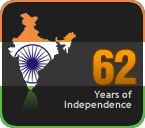This grid illustrates the basic Kirkpatrick structure at a glance. The second grid, beneath this one, is the same thing with more detail.
level evaluation type (what is measured) evaluation description and characteristics examples of evaluation tools and methods relevance and practicability
1 reaction
* reaction evaluation is how the delegates felt about the training or learning experience
* eg., 'happy sheets', feedback forms
* also verbal reaction, post-training surveys or questionnaires
* quick and very easy to obtain
* not expensive to gather or to analyse
2 learning
* learning evaluation is the measurement of the increase in knowledge - before and after
* typically assessments or tests before and after the training
* interview or observation can also be used
* relatively simple to set up; clear-cut for quantifiable skills
* less easy for complex learning
3 behaviour
* behaviour evaluation is the extent of applied learning back on the job - implementation
* observation and interview over time are required to assess change, relevance of change, and sustainability of change
* measurement of behaviour change typically requires cooperation and skill of line-managers
4 results
results evaluation is the effect on the business or environment by the trainee
* measures are already in place via normal management systems and reporting - the challenge is to relate to the trainee
* individually not difficult; unlike whole organisation
* process must attribute clear accountabilities
Tuesday, May 26, 2009
the four levels of learning evaluation
Donald L Kirkpatrick, Professor Emeritus, University Of Wisconsin (where he achieved his BBA, MBA and PhD), first published his ideas in 1959, in a series of articles in the US Training and Development Journal. The articles were subsequently included in Kirkpatrick's book Evaluating Training Programs (1975 and since revised), published by the American Society for Training and Development (ASTD), for whom Kirkpatrick previously served as president and with whom he maintained strong connections. Donald Kirkpatrick has written several other significant books about training and evaluation, more recently with his similarly inclined son James, and has consulted with some of the world's largest corporations.
Donald Kirkpatrick's 1975 book Evaluating Training Programs defined his originally published ideas of 1959, thereby further increasing awareness of them, so that his theory has now become arguably the most widely used and popular model for the evaluation of training and learning. Kirkpatrick's four-level model is now considered an industry standard across the HR and training communities. The four levels of training evaluation model was later redefined and updated in Kirkpatrick's 1998 book, called 'Evaluating Training Programs: The Four Levels'.
The four levels of Kirkpatrick's evaluation model essentially measure:
* reaction of student - what they thought and felt about the training
* learning - the resulting increase in knowledge or capability
* behaviour - extent of behaviour and capability improvement and implementation/application
* results - the effects on the business or environment resulting from the trainee's performance
All these measures are recommended for full and meaningful evaluation of learning in organizations, although their application broadly increases in complexity, and usually cost, through the levels from level 1-4.
Donald Kirkpatrick's 1975 book Evaluating Training Programs defined his originally published ideas of 1959, thereby further increasing awareness of them, so that his theory has now become arguably the most widely used and popular model for the evaluation of training and learning. Kirkpatrick's four-level model is now considered an industry standard across the HR and training communities. The four levels of training evaluation model was later redefined and updated in Kirkpatrick's 1998 book, called 'Evaluating Training Programs: The Four Levels'.
The four levels of Kirkpatrick's evaluation model essentially measure:
* reaction of student - what they thought and felt about the training
* learning - the resulting increase in knowledge or capability
* behaviour - extent of behaviour and capability improvement and implementation/application
* results - the effects on the business or environment resulting from the trainee's performance
All these measures are recommended for full and meaningful evaluation of learning in organizations, although their application broadly increases in complexity, and usually cost, through the levels from level 1-4.
Labels:
4 levels of learning evaluation
Monday, May 25, 2009
Sunday, May 24, 2009
Seminar on Technical Writing
Hi All
Af ter a long time, a seminar was conducted by me for Technical Writers. The topic was little bit wired. Visual communication for Technical Writers.
It was a great Saturday at ICON, with 12 people attending the seminar. The best part was that i was showing the attendees Captivate, the tool which i love to use.
Audience Feedback: Workshop made Technical Writers feel really worth of it.
Mileage: More Enquiries for Advanced Technical Writing module
Thaks to ICON for giving me this opportunity.
Ramesh
Af ter a long time, a seminar was conducted by me for Technical Writers. The topic was little bit wired. Visual communication for Technical Writers.
It was a great Saturday at ICON, with 12 people attending the seminar. The best part was that i was showing the attendees Captivate, the tool which i love to use.
Audience Feedback: Workshop made Technical Writers feel really worth of it.
Mileage: More Enquiries for Advanced Technical Writing module
Thaks to ICON for giving me this opportunity.
Ramesh
Subscribe to:
Comments (Atom)









